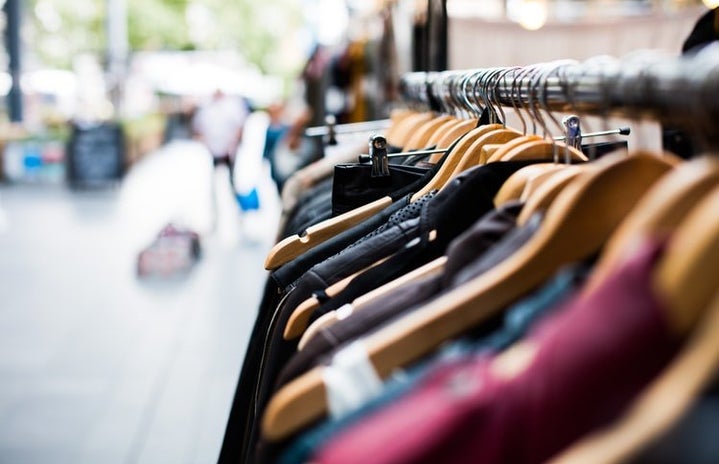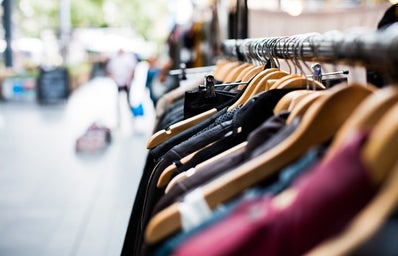Being sustainable is talked about on every online platform, but it can get so confusing so quickly. Here are my simplified tips on some easy changes you can make:
1. Shop second-hand
Probably the most obvious step is to swap fast fashion for charity or vintage shops. Oxfam or the White Rose shops across Nottingham are a great place to start for a low price. You save money and just because its second-hand doesn’t mean you have to compromise on quality. I once found a Levi’s denim jacket for only £6 in a charity shop, so you never know what you might find. These places need donations too though. Just because you’ve bought clothes from fast fashion brands at some point doesn’t mean that you can’t be more sustainable later on by donating them.
2. Zero-waste food shopping
Trying to shop zero-waste can sound impossible at first. I’m not going to lie, it’s definitely tricky, but there are some easy things you can do to at least reduce your waste without too much effort. Buying loose vegetables and taking your own reusable food bags reduces unnecessary packaging from the supermarket. The only hard part of this one will be remembering to take the bags with you. Portland Zero (in the Portland Building on campus) also sells food without the plastic packaging. Just take your own container and buy as much pasta as you can fit in it.
You can also get replacements for food coverings like silicone cling film. I know that my student kitchen cupboards have more reusable containers than we could ever need so we are much more likely to use up our leftovers. You can also try to make up a recipe with the random ingredients you’ve got left in your fridge at the end of the week. This is definitely a fun way to reduce your food waste, try something new and maybe make a mess in the kitchen.
3. Reusable period products
The amount of waste our single-use period products generate each year is shocking. There are so many alternatives that we don’t choose for some reason. Think how much of your life you have a period for (an annoying thought, I know). It definitely would work out cheaper to get an alternative to pads or tampons that lasts longer than a few hours. Some of the options are hard to get your head around, but every person I know that’s tried period underwear or reusable pads swears by them. There are so many options available: reusable pads and period underwear are only the most obvious swaps to make. Long term fixes like menstrual cups can last for up to 10 years. That’s got to be better for the environment than the number of pads you would get through in the same amount of time.
4. Ethical shopping – shop local
This is probably the most complicated part to understand, in my opinion. There’s so much to think about that sometimes it can be easier not to. Just because something says it’s been made in the UK, doesn’t mean it’s been made ethically. My first piece of advice would be to shop local or shop from small businesses. Huge companies have such complex supply chains that working out if something is ethically sourced, can take forever. You’ve got to think about where it’s made and who by. How much it costs you and how much of that goes back to who made it. And if that’s a fair price.
Supporting smaller businesses supports your local economy and who doesn’t love getting something handmade. Ethical shopping doesn’t just apply to clothes. Those prints you can get off Etsy for your uni room, are also a great way of supporting local businesses. If you’ve found exactly what you want on Amazon or something similar, try searching the seller’s name as they will often have their own platform where they get more of the profits.
We learn about Fairtrade so early on in school, so we know how to source our food ethically and sustainably. But why does this stop at supermarkets, why not when we buy everything else too?

